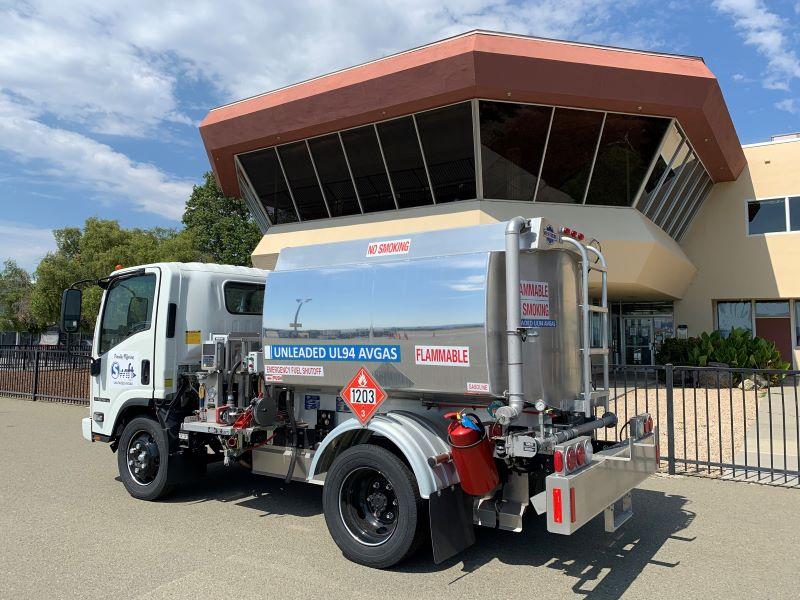
General aviation airports in Santa Clara County, California, will demonstrate best practices for transitioning to unleaded aviation fuel under an agreement the FAA and the county announced on Feb. 9.
Reid-Hillview Airport in San Jose and San Martin Airport, 25 mi. south of the city, will participate in the inaugural project under a memorandum of understanding (MOU) signed Feb. 7 with the FAA. As part of the agreement, the agency suspended for six months its investigation of alleged grant violations at the county-owned airports, which caused an outcry from GA industry associations when they banned the sale of 100LL leaded avgas as of January 2022. Both now supply only Swift UL94 unleaded avgas in addition to Jet-A.
“When the county banned the sale of leaded aviation gas at our airports, we did so to protect the health of those families who live in our community, especially children, who have been unjustly exposed to harmful pollution for decades,” County Supervisor Cindy Chavez said. “We would welcome the opportunity to showcase what we have done here in Santa Clara County and should be replicated across the country.”
GA associations protested the county’s decision in late 2021 to phase out 100LL, citing the danger of pilots accidentally misfuelling their aircraft with potentially catastrophic consequences. The county said the MOU does not affect a complaint filed with the FAA by the Aircraft Owners and Pilots Association alleging federal grant violations.
“Despite the unavailability of leaded avgas for sale at the airports since January 2022, the number of general aviation operations and aircraft based at the airports has remained constant,” Santa Clara County said. “The county is unaware of any safety incidents caused by the unavailability of leaded avgas for purchase since the transition.”
The FAA in a statement said the county “will address airfield safety and land-use issues” at the two airports. “The agency anticipates the county airports will join a demonstration project to collect data and develop best practices as the country’s 200,000 piston aircraft transition to unleaded fuel. A limited number of other general aviation airports will participate in the demonstration project selling a range of leaded and unleaded fuels.”
The agreement was announced as pressure builds on the FAA in Congress to expedite the certification and supply of unleaded fuels that will work across the wide variety of piston-engine aircraft. The agency in September 2022 authorized the use of General Aviation Modifications Inc.’s G100UL unleaded avgas across piston aircraft types by supplemental type certification.
Other unleaded avgas products are being evaluated under the Eliminate Aviation Gasoline Lead Emissions (EAGLE) program the FAA and GA industry associations announced in February 2022, with the goal of transitioning to nationwide unleaded avgas by 2030.
At a hearing of the House Transportation and Infrastructure Committee on Feb. 7, U.S. Rep. Scott Perry (R-Pennsylvania) pressed Acting FAA Associate Administrator for Aviation Safety Dave Boulter on the action taken by Santa Clara County to ban 100LL avgas. “What’s the FAA done about the ban?” Perry asked. “Are other airports going to be allowed to ban it?”
Perry added: “It seems to me that if we’re going to have a replacement fuel—and apparently we do, which is great—we have to make sure that it is widely available and that it is affordable. If that’s not the case, we cannot allow airports to unilaterally ban it and have the FAA continue to sanction that type of operation.”
Under Federal Grant Assurance 22, Perry said, “if you’re going to have a public airport you’ve got to provide the fuel and other services. Yet the FAA is allowing airports to ban the fuel for political reasons; it has nothing to do with science. What’s the FAA going to do about it?”
